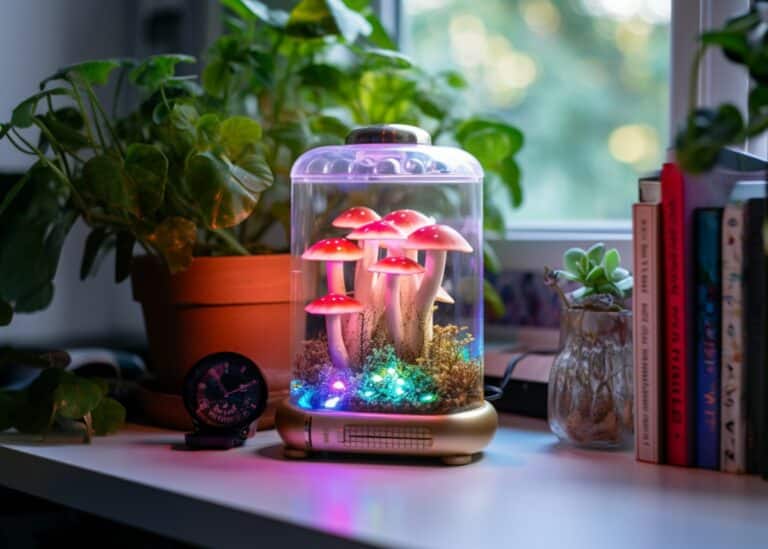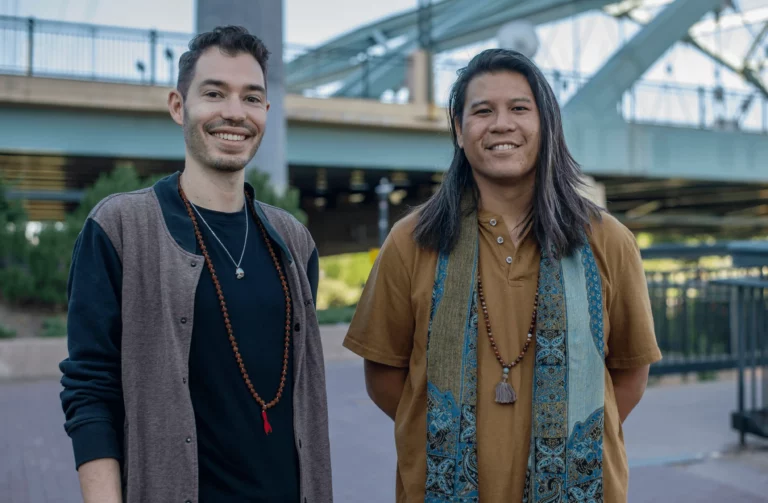Recording a therapeutic psychedelic session may seem appealing as a means to preserve the insights, emotions, and breakthroughs that unfold during the psychedelic experience.
This decision, however, should be approached with careful consideration, which is why this article addresses important questions and variables regarding the different ways you can record your psychedelic ceremony.
Your decision should be made during the preparation stage while conferring with your psychedelic facilitator to ensure that both parties are aware of the recording taking place.
We are at a unique point in psychedelic history where what used to traditional entheogenic and shamanic ritual use is now being melded with both modern medicine and therapy as well as technology.
It is important to note that the decision to record a session is still a deeply personal one. Each individual’s preferences, therapeutic goals, and comfort levels will inform this choice.
By providing insights, exploring potential benefits, and offering a nuanced understanding of the factors at play, we hope to empower individuals to make an informed decision that aligns with their unique needs and values.
Lights, Camera, Action: Exploring Different Recording Options
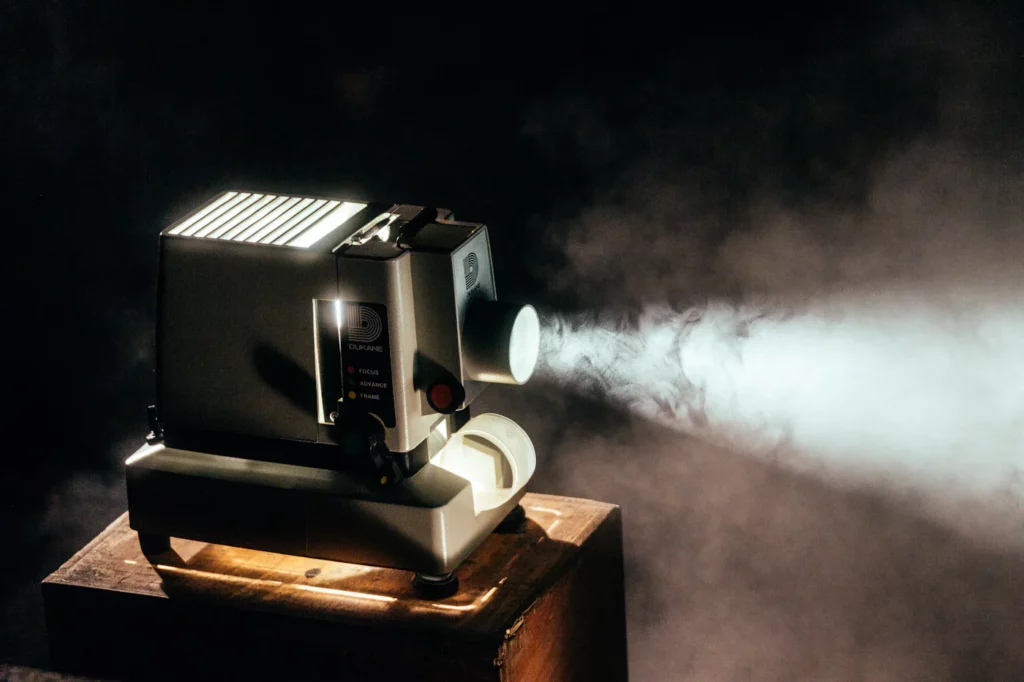
When it comes to documenting psychedelic experiences during therapeutic ceremonies, there are several recording options available.
Similar to our article on whether or not a partner or friend should attend your psychedelic experience, this section will highlight the pros and cons and whether or not the potential for distraction outweighs the benefits of each form.
Each method offers unique advantages and considerations, allowing individuals to capture their transformative journeys in different ways and even manage pre-trip anxiety by knowing that the process is being documented:
1. Audio Recordings
Recording audio during a psychedelic ceremony allows for the capturing of spoken words and sounds with a microphone or portable audio recorder without being visually distracting.
It can serve as a valuable tool for later reflection and analysis, enabling participants to revisit insights, conversations, and guidance provided by facilitators or therapists.
Benefits of recording the audio of your ceremony:
-
- Less visual distraction & potential for conscientiousness regarding being filmed
-
- An opportunity to reflect on whatever was said or verbally expressed by you or your guide during the ceremony
Considerations:
-
- Depending on the laws in your state, you may need to inform and confer with your facilitator prior to beginning any audio recording.
-
- This method of recording can potentially distract or influence your behaviors during the experience.
2. Video Recordings
Video recordings offer a comprehensive way to capture a broader psychedelic experience. By recording visuals, body language, and facial expressions, this method provides a more immersive way to revisit the journey.
Video recordings can offer valuable insights into one’s emotional state, physical reactions, and interactions during the ceremony.
Benefits of filming your ceremony:
-
- Provides the most thorough documentation of the experience, preserving both spoken events and visual expressions and movements which both can be analyzed in the integration process
Considerations:
-
- Depending on the laws in your state, you may need to inform and confer with your facilitator prior to beginning any video recording.
-
- This method of recording can potentially distract or influence your behaviors during the experience, making it difficult to fully surrender to the experience.
3. Written Recordings
Although not a recording method in the traditional sense, written journals serve as a popular means of documenting psychedelic experiences.
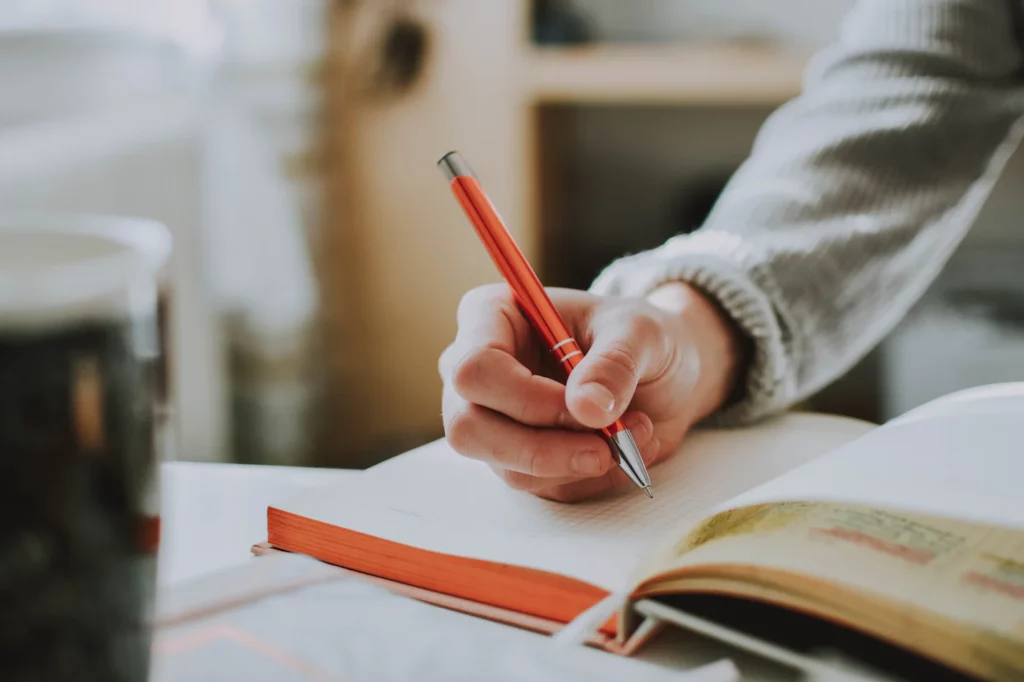
Through writing, individuals can describe their thoughts, emotions, and perceptions in detail. Journals provide a private space for personal reflection and can be a powerful tool for integrating insights and lessons learned from the psychedelic journey.
For this form of documentation, it’s necessary to distinguish between who is doing the documenting. If you as the journeyer are doing the writing, this provides a more intimate vantage point for later analysis.
On the flip side, having your facilitator write down notes as the ceremony occurs resembles more closely the external perspective of having an audio or video recording, without the added presence of a recording device.
Benefits of journaling during your psychedelic ceremony:
-
- Highlights and provides more intimate insights into the internal experience by selectively documenting what seems important while you are tripping
-
- Provides insights without having to be recorded, which could be disconcerting while in an altered state
Considerations:
-
- This form of personal documenting can (and often does) happen spontaneously toward the end of a ceremony as you begin to process what has happened and re-enter mundane consciousness.
-
- Trying to force yourself to write while tripping (if not done so intuitively) can detract and alter the experience itself.
-
- Be sure to consider whether or not you want an internal or external perspective on the journey, and whether your goal is to preserve your own thoughts or the external events that take place.
4. Artistic Expression
An honorable mention goes to artistic mediums when it comes to documenting or recording a psychedelic experience. Some journeyers may prefer to express themselves while tripping through various forms of art.
Painting, drawing, sculpture, or other artistic mediums can capture the essence of the journey in a way that words or videos might not fully capture.
Benefits of documenting a ceremony through art:
-
- Allows for a deeper, internal exploration of the subconscious mind and can serve as a powerful therapeutic tool for self-expression and understanding
-
- Has the least potential for distracting you as the journeyer
-
- You may come away with a special memento that represents and reminds you of your experience
Considerations:
-
- Like journaling, this method requires a personal choice to engage in the documenting process while tripping, so it is both important not to force an expression and not distract yourself from absorption into the experience itself.
Download Our Free Psilocybin Sourcing Guide
For harm-reduction purposes, we provide links to online psilocybin vendors, local stores, delivery services, and spore vendors for growing your own medicine at home.
Recording Frequently Asked Questions (FAQs)
1. Does the facilitator record the session?
Facilitators do not record ceremonies unless expressly communicated during the preparation stage. Audio and video recording need to be agreed upon by both parties, and requesting a written documentation can easily be arranged.
2. Will I remember what happened during my trip?
Most journeyers remember the content of their trip but may forget certain aspects, such as felt-sense elements. Recording can help you harken back to the state of mind you were in so that you can integrate and recall what you learned.
3. How can I ensure that I remember the details of my experience?
Having a guide present who can later recall the external events and expressions during a trip can help you piece together your experience.
The best way to remember your experience in great detail is to, firstly, have an external way of recalling the events (via hearing the memories of a guide or reviewing audio or video recordings).
Secondly, you can remember the internal details of your experience through meditation and quiet reflection and reviewing journals and personal expressions which were preserved during the trip itself).
4. How can I document my experience without being distracted from the experience itself?
Only you can decide what will be the least distracting and has the potential for inducing a “bad trip”. Having an audio or video recorder present can be a seamless way of documenting which requires no effort on your part during the ceremony.
However, if you may feel uncomfortable or paranoid about being on camera or being listened to by a device while in an altered state, it may be more conducive to your wellbeing to rely on written forms of documentation.
Overall, audio and video recordings allow you to forget about the recording process, while writing yourself may become cumbersome or distracting.
5. Will the facilitator be taking notes?
Yes, facilitators remain present and can provide meaningful insights from an external perspective during integration. While not all facilitators choose to physically write down notes during the ceremony, they certainly take mental notes.
If you would specifically like your psychedelic guide to write tangible notes during your ceremony, that can be easily arranged while preparing for the psychedelic ceremony.
6. Should I take notes during the session or ceremony?
Taking notes and journaling while under the influence of mind-altering medicine can be a profound tool, however, if your desire to document takes away from the lived experience of getting lost in the trip, it may be better to save the journaling for afterwards.
7. Should I consider audio recording or video recording?
Audio and video recording can be helpful, but is not necessary for everyone. We encourage you to speak with your psychedelic facilitator about whether or not recording your experience is right for you, and encourage you to make whatever decision feels the best for your individual needs and desires.
8. Will I be aware that I’m being recorded? Will it affect the experience?
It is possible that having a recorder present could distract or negatively impact your experience. In this case, if you decide prior that you want to be recorded and then change your mind at any point before or during the ceremony, your guide can adjust according to your needs.
9. What are the benefits of recording a ceremony?
Recording a ceremony allows you to later review whatever forms of documentation were collective for integrative purposes. It can help you recall important details, gain a unique perspective on an internal experience, and simply remember a special time.
Recording a ceremony could also provide a feeling of safety and serve legal purposes in rare cases should a crisis arise.
10. What are the benefits of not recording a ceremony?
Not recording a ceremony allows you to become fully absorbed in your experience without distraction.
Ethical and Legal Considerations
While the legality of recording may vary depending on the jurisdiction, it is crucial to familiarize oneself with the applicable laws and regulations.
However, beyond legal considerations, there are other important factors individuals should keep in mind when deciding whether to record a session. These factors include personal preferences and privacy concerns.
Firstly, recording a psychedelic session can have both benefits and drawbacks. Some individuals may feel that the recording enhances their experience, allowing for later reflection and integration.
Others, however, may find it distracting or intrusive. It is important to consider how recording might align with one’s personal goals and comfort levels.
Privacy concerns are another crucial aspect. Participants involved in the session, including therapists, facilitators, and other participants, have a right to privacy and confidentiality.
Recording should only occur with the explicit consent of all individuals involved. Respect for privacy is paramount to create a safe and trusting therapeutic environment.
It is important to discuss the intention and potential benefits or challenges of recording with the facilitator. They can provide guidance and help navigate the decision-making process based on their expertise and understanding of the individual’s unique needs.
When it comes to legality, certain states have different laws around psychedelics and expressed consent around recording conversations between two parties.
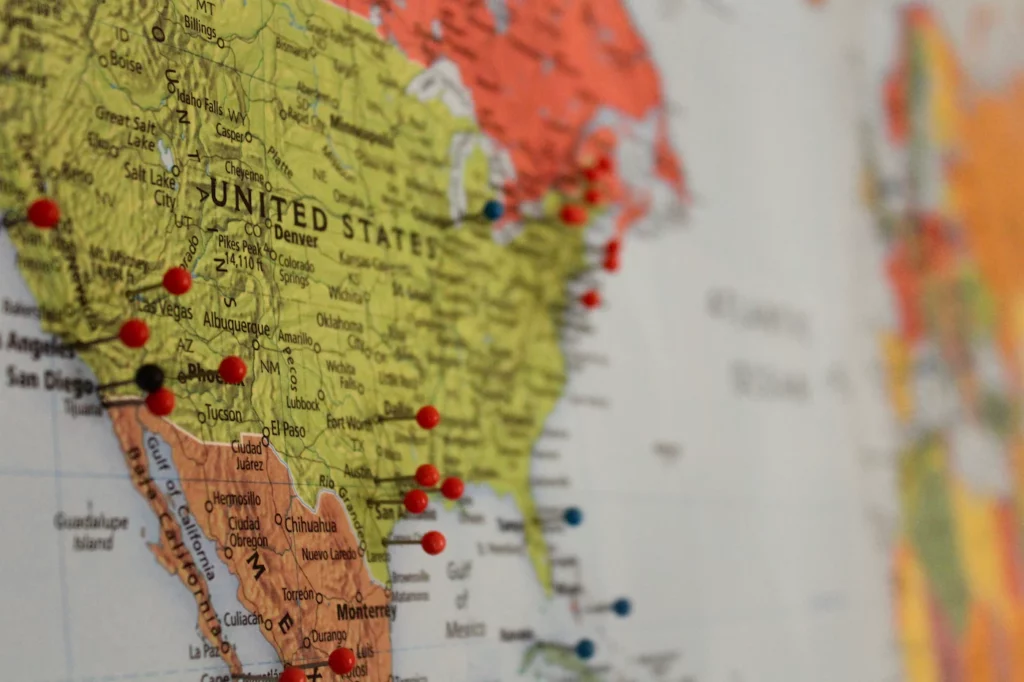
Most states in the US require only one-party consent for recording, while the following states require the consent of both parties who are present in any recording:
-
- California
- Delaware
- Florida
- Illinois
- Maryland
- Massachusetts
- Montana
- NevadaNew Hampshire
- Pennsylvania
- Washington
We are confident that open communication between facilitator and journeyer allows for a respectful and consensual agreement that is conducive to the wellbeing of both parties.
Enhance Your Psychedelic Journey With Personalized Guidance
We hope this article provides helpful insights into whether or not recording an intentional psychedelic journey is right for you.
The facilitators in our network work with you closely to create an individualized approach to psychedelic medicine, consulting you throughout the entire process.
No matter if you are curious about how to microdose safely or are looking for support on a full-dose psychedelic experience, our network of facilitators help prepare you for the journey, sit with you during the trip, and help you integrate your experience into everyday life.
Book a consultation with us today if you are ready to begin your healing journey or have additional questions about the process.
Also, check out and utilize our resources page for more information on a diverse array or psychedelic topics, from articles on available scientific research to how-to topics.
